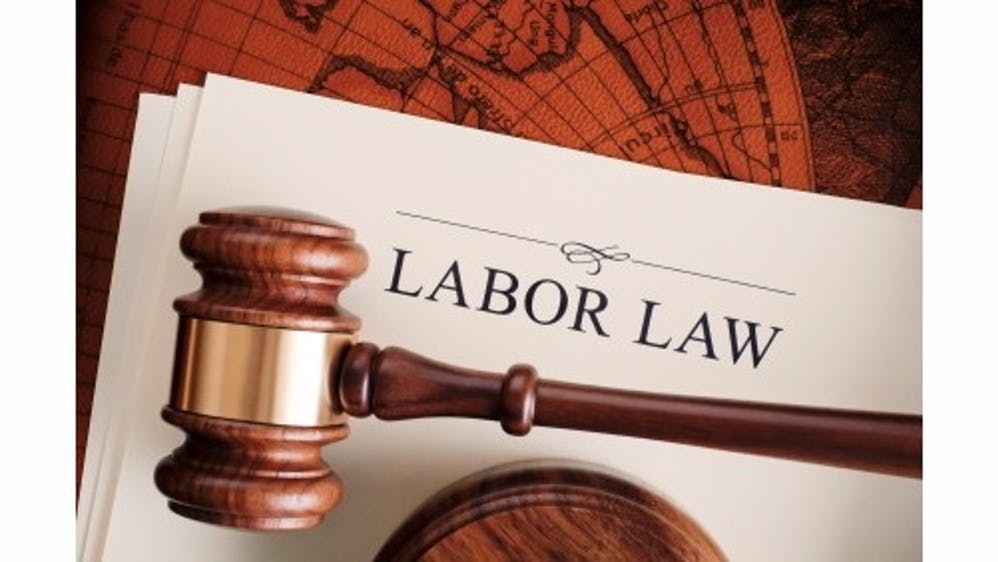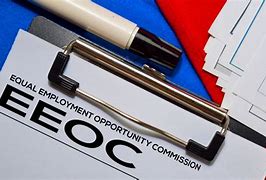Below is a review of the posts (on Facebook, LinkedIn, and Twitter) from the past week. You can check out the full posts by clicking on the links.

In the post on Sunday 11/21/2021 we read about a Texas judge ruling religious businesses and churches are shielded from gay and transgender discrimination liability. But … The decision supposedly answers legal questions left open by the 2020 Bostock v. Clayton ruling. The judge said that for-profit businesses can be shielded from gay and transgender discrimination lawsuits if the person makes employment decisions based on sincerely held beliefs. More specifically, employers can create and maintain codes of conduct that regulate employees’ sexual conduct to the extent the policies do not target solely homosexual or transgender activities. Ok, let’s go back to the facts. Business owner Steve Hotze filed suit to challenge the EEOC’s interpretation of Title VII. The suit was filed on behalf of Hotze’s business, Braidwood Management Inc, as well as the Bear Creek Bible Church. So while the judge ruled that workplace policies regarding sexual conduct, dress codes, or restrooms do not violate Title VII, he found some things that DO violate Title VII. They are noted in the post. In Bostock the Supreme Court did not address religious defenses for workplace discrimination liability; now we have a decision filling that gap. Will the EEOC appeal? See the post.
TAKEAWAY: This decision is not binding throughout the US but does give one viewpoint of the gaps left by Bostock. Consult an employment lawyer before taking adverse action based on sexual orientation.

The post on Monday 11/22/2021 was about the pandemic and employers – unforeseen events and unforced errors. There have been so many changes over the last 18+ months. Employers everywhere have had to adapt to the federal government’s constant revisions and updates to guidance for maintaining a safe workplace. And all that was exacerbated by a lack of returning employees and inability to hire new ones. And what does has that lead to? See the post. And on top of that we have CDC guidelines that effectively became requirements and, most recently, the Biden administration’s mandate that employers with 100 or more employees require that they be vaccinated or show a negative COVID-19 test on a weekly basis. Of course, multiple suits are pending relative to the mandate. And what about the vaccination mandate for employees of federal contractors? See the post. So what is still one of, if not the most, problematic area for employer? Wage and hour violations under the Fair Labor Standards Act (FLSA) or similar state laws, especially misclassification as exempt from overtime under the exemption for “administrative” personnel. One big mistake many employers harbor is noted in the post (and hopefully you will not see yourself there). The requirements to qualify for the administrative exemption are noted in the post. If the employer is wrong, there might be a Department of Labor (DOL) claim or private lawsuit resulting in backpay for overtime wages for up to three-years for each week that a misclassified employee worked more than 40 hours and possibly liquidated (double) damages and fines for each violation (and don’t forget attorney’s fees – see the post). But wait, there’s more. What about claims for off-the-clock work? They too have been increasing. What they might entail, and the liability that might result, is in the post.
TAKEAWAY: Employers must know which laws apply in their workplace – and how they affect each employee. Get legal assistance if needed.

The post on Tuesday 11/23/2021 reminded us that a DOJ discrimination suit over shoes left outside holds lessons for community associations. So what is this about? A decision by a Florida condominium association and its board refusing to grant an accommodation to allow an owner to leave his shoes outside the front door of his unit in a condo building with outdoor walkways. As a result, DOJ has filed a suit alleging violations of the Fair Housing Act (FHA). Charlie Burge sought an accommoda-tion to leave his shoes outside his unit’s front door. Bunge is a 9/11 responder who suffers from medical ailments stemming from his front-line work at the World Trade Center site. For more on what he heroically did at the WTC and how it affects him to this day, see the post. He moved to FL after he retired. And to avoid aggravating his symptoms, and on the advice of his doctor, he and his wife began leaving their shoes outside of their front door. The configuration is spelled out in the post. But then in October 2017 the association’s board sent the Burges a rule violation notice and gave them 10 days to remove the shoes from the hallway. And that is where the FHA kicks in (per the DOJ’s allegations. But instead was another notice from the board in January 2018 and one day the Burges opened their front door and found their shoes missing, so they called the police. Officers then helped them to retrieve their shoes from the association’s management office. This scenario repeated itself again. The association’s lawyer and the city got involved – see the post. Finally the Burges submitted a request for accommodation through their lawyer – and the response from the association was unbelievable (see the post). The Burges and association went back and forth for over a year. What happened is described in the post. At one point, when Burge began washing his shoes before going inside using a spigot located in the garage, management removed the spigot handle. There are claims of uneven treatment (in the post) and more. Finally the Burges filed a complaint with HUD in 2019 and DOJ entered the picture. Expect to hear more about this in the future.
TAKEAWAY: boards cannot bury their heads when an accommodation is requested; they must act reasonably and legally. The safest way to proceed is to consult a community association lawyer.

The post on Wednesday 11/17/2021 gave us five key takeaways from EEOC updated Guidance on religious objections to COVID-19 vaccine mandates. On October 25, 2021, the EEOC updated its technical assistance guidance to address questions about religious objections to employer COVID-19 vaccination mandates. The first thing to know is the framework in which such an accom-modation request might be made. It is outlined in the post. And then are the 5 takeaways. First, employers should proactively tell employees how to request an accommodation. How the EEOC updated this relative to COVID-19 is in the post. Second, employers may assess credibility when evaluating whether an employee’s religious belief is “sincerely held”. The updated Guidance listed some things the employer can consider; they are listed in the post. The other 3 takeaways are in the post along with how the Guidance expounds upon them.
TAKEAWAY: Work with an employment lawyer to develop and equally implement a plan for any situation when a religious accommodation is requested.

In the posts on Thursday 11/25/2021, here, here, and here, we wished you a Happy Thanksgiving. A day of reflection, thanks, blessings, and thoughts for the future. For family, friends, and colleagues, near and far, present and lost.
TAKEAWAY: Every day can be a type of thanksgiving in the workplace if all laws are followed … evenly and to a T unless there is a valid legal reasons to stray.

The post on Friday 11/26/2021 taught us how to get condo or homeowners Association financial records. Often someone who owns a house in a planned community, be it a condo-minium or homeowners’ association, wonders where their dues or assessments are going. So do they have a right to see financial records? It depends on the Governing Documents and applicable state law. And for the association in the post, on what the board members decided to do. Why would a board not want to let an owner see financial documents? See the post for some possible reasons (although not necessarily good ones).
TAKEAWAY: Know the law in Pennsylvania about records access in condo and homeowner associations – and consult an experienced community association lawyer.

Finally, in the post yesterday 11/27/2021, we saw that a former SpaceX engineer accused the company of racial discrimination, denied fired for inappropriate facial expressions. Ajay Reddy filed suit earlier this month, alleging that he was paid substantially less than his colleagues and that he suffered severe harassment. What else did he allege the company did to him? See the post. The counts in the suit include race and national original discrimination, retaliation, and breach of contract. Reddy, who identifies as Asian-American of Indian descent, says he was fired in May 2020, after which he filed a charge with the EEOC. SpaceX issued a position statement to the EEOC that included why Reddy’s manager, Robert Hill, terminated his employment (and which is noted in the post). In contrast, Reddy details the things that he says SpaceX did that violate the law; again, they are listed in the post. While employed, Reddy worked with 2 white engineers who were hired before him on the project (which is described in the post). Reddy alleged that at the beginning none of them knew about the project, but then that changed. Why? See the post. And there’s more. Reddy also alleges that the other 2 colleagues made big mistakes (costing millions of dollars) but were not punished, whereas Reddy was disciplines for similar mistakes. Pay discrimination? Yep, that’s in the complaint too (and described in the post).
TAKEAWAY: Treat all employees doing the same job the same unless you have good legal standing to the contrary. Tread lightly without legal counsel.

 York, Pennsylvania 17403
York, Pennsylvania 17403